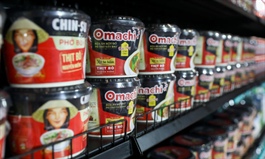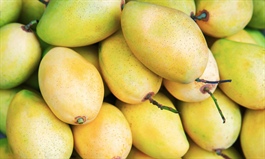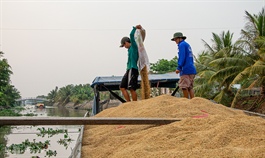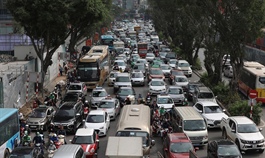Vietnamese coffee industry to go global
Vietnamese coffee industry to go global
Though COVID-19 has brought challenges to the coffee industry, businesses can nevertheless seek to adapt by exploring innovative and value-added ideas for Vietnamese coffee.

Coffee experts gathered at the RMIT University’s International Business Forum 2021 last week to share how to promote the local commodity to the world.
According to the experts, Viet Nam has consistently ranked among the world’s largest coffee producers and exporters in recent years. Even before COVID-19 and later throughout the crisis, many Vietnamese coffee businesses have made efforts to diversify their export markets, improve quality, leverage the potential of specialty coffee, and expand online marketing and distribution channels.
RMIT International Business Senior Lecturer, Abel Alonso, said: “Responding to the current crisis through value-adding efforts and activities is crucial for Viet Nam’s coffee industry. Besides the established coffee house culture, many hospitality and tourism activities are making coffee their central product, especially in the post-COVID era.”
“Stakeholders in this industry should understand that future development requires increased focus on value-adding activities and raising awareness of Viet Nam’s specialty coffee, as success stories from other countries like Peru demonstrate,” he said.
Based on a couple of recent studies related to Viet Nam's coffee industry, RMIT Tourism and Hospitality Management lecturer Vu Thi Kim Oanh emphasised the efforts made by Vietnamese coffee stakeholders in the journey to bring Vietnamese coffee to the world.
“Many stakeholders in the industry have taken specific actions to contribute to bringing Vietnamese coffee to the world. For example, tour companies, hotels, and coffee businesses have collaborated to build an experience model of a "coffee path", “from farm to cup", or "from seed to cup" for visitors,” Oanh said.
Sharing experience from Les Vergers du Mekong company, known for its Folliet coffee brand, General Director Le Van Dong said that strong market knowledge, a focus on reducing adverse environmental impact, and technology application have been key to their sustainable success for the past two decades.
“We manage our supply chain very carefully. For instance, we have designed a traceability app, and frequently hold workshops and provide support to farmers so that our international quality standards are maintained. We also use eco-friendly packaging and are piloting organic farming. These are the basis for our competitive advantage and high sales,” Dong said.
Speaking at the forum, Tran Nhat Quang founder and CEO of Da Lat-based La Viet Coffee, highlighted the potential of ‘in-country export’. When building their factory in Da Lat, La Viet combined their production facilities with a coffee shop in one space, so that visitors can enjoy their coffee while learning through visitation about the production process and products.
“We have a two-hour tour of our factory and the roasting and brewing experience. We also have a one-day tour, which offers an in-depth experience for international tourists interested in local farming. This tourism model was very successful prior to COVID-19, and we intend to continue with it when travelling is enabled again,” Quang said.
Quang now has coffee stores in the most tourists in Viet Nam in Da Lat, Ha Noi and HCM City.
According to Nguyen Van Minh, Deputy Chairman of the Viet Nam Farms and Agricultural Enterprises Association, the coffee industry has been and will continue to be a mainstay in Viet Nam’s international business.
“Viet Nam is gearing towards a smart, organic and value-adding agricultural sector. The coffee industry is part of this trend. Viet Nam can improve the value of its coffee gradually by innovating, applying technology and creativity in new products, and attracting prestigious investors,” he said.
The International Business Forum is organised by RMIT annually since 2017 to bring together leading international and Vietnamese experts, policymakers and academics to discuss key themes in international business with a Vietnamese context.
Initiated by RMIT Associate Professor Nguyen Quang Trung and chaired by Dr Abel Alonso, the annual forum aims to enhance the exchange of knowledge, useful experiences and best practices among domestic companies, multinational corporations, and key stakeholders in international business in Viet Nam.
























